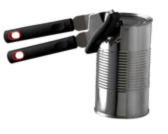Category — 4.1 Ten to Twelve: Adaptive Skills
Adaptive Skills
By 10 to 12 years of age, a child’s basic adaptive skills are very similar to those of adults. They are expected to take care of their hygiene on their own. They are expected to pick what they will wear, know when to shower and brush their hair and teeth. Difficulties with adaptive skills are very likely to affect other developmental areas, especially the social/emotional domain. They are also very likely to indicate delays in all other areas at this age. Any delay in any area of adaptive development should be noted.
When it comes to adaptive skills, some warning signs a child might show are:
- needing help when bathing or showering;
- being unable to get dressed and undressed on their own (this includes fastening snaps, tying shoe laces, and buttoning small buttons);
- not understanding why they should brush their hair and their teeth;
- being unable to prepare a snack or simple meal by themselves (for example: frying an egg);
- being unable to care for minor cuts;
- being unable to use real, as opposed to toy tools (such as a screw driver or hammer) (Fig. 1);
- being unable to use a minor appliance (e.g. a can opener or blender) (Fig. 2);
- continuing to struggle with basic eating utensils (like forks, knives and chopsticks) (Fig. 3).
Figure 1. Screw driver
Figure 2. Can opener
Figure 3. Utensils
see References
May 6, 2012 No Comments



